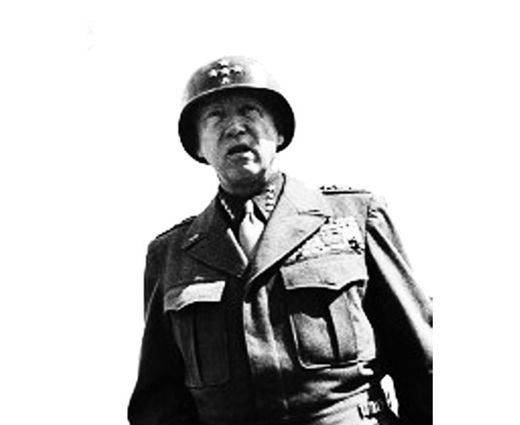Do Your Homework!
The Sales & Counselor Selling Series
“Rommel, you magnificent bastard, I read your book!” *
– General George S. Patton, U.S. Army
Spoken by George C. Scott, playing the general, in the movie “Patton”
In this classic war movie from 1970, General Patton triumphs over his nemesis in part by reading Rommel’s book on tactics, The Tank in Attack, prior to forming the winning battle plan. Hey! Doing your homework is an unassailable and proven concept for life and business success.
There’s a way to win the hearts of an audience, but you won’t know what it is until you do the homework. There’s a way to win an argument; but you have to ferret out the real facts before the showy debate. There’s a way to make a point in an article, but not without the deep discovery required to find the truth.
It’s a truism! Do your homework!
Before a Debate: research the arguments and counter-arguments; and your opponents, their speaking style and their case.
Before Presenting: research the subject, the people attending, their points of view and the financial, corporate and departmental forces bearing on the discussion.
Before a National Sales Meeting: research the attendees, their markets, the competition and the investor base. Oh, and how’s their perspective about comp and bonuses?
Before a Negotiation: research your counterpart, their every need, desire and the catalog of potential concessions.
Even before a TaiChi Match: research your opponent, his favorite tactics, his teachers and his style. How’s his health been lately?
Every one of these disparate examples is a contest of wills, requiring research to formulate strategy.
Sure. So, what? We used a quote to open this article. Some of you may remember the movie, some only the quote. But here’s the real point:
*General Patton never really said that. General Rommel never wrote that book.
The real truth, revealed through research, is that Rommel did indeed write a widely circulated book about infantry tactics, and he planned on writing a book about tank tactics — but he never did. The quote, the book and the incident were a product of Francis Ford Coppola’s wonderful screenwriting. Great, but — imaginary. Giving dramatic proof to the old wholesaler statement; “Never let the facts get in the way of a good story!”
Good stories abound. But founding an argument on a good story, common knowledge, or what “everybody is saying on Facebook” or at worst, falsehood, can end in disaster. Reference James Frey, Jayson Blair, Jonah Lehrer.
N.W. Ayer — the Advertising Agency — created and sold the concept of “The Diamond Engagement Ring” for the DeBeers Corporation. The campaign was so successful that this “accepted American custom” has since found its way around the world. More recently, the “Two Month’s Salary” figure has added gross (and carat weight) to DeBeers’ profitability.
“Come on!” you say; “Doing your homework is a good thing.” Engagement rings, good homework habits and diamonds are universally accepted. But sometimes, cultural acceptance is accomplished or facilitated through fiction — or even deliberate deception. Wouldn’t you rather know which?
So, do your homework. You may be buying (or selling) celluloid, hot air or both.
Applications
1. Personally
Have you found yourself starting to work on a meeting, a speech or a paper with a fixed point of view, merely gathering scraps of information to support the argument? Cart before the horse perhaps? What about starting with an open mind, looking for the larger truth? Once you digest the information, you can produce a more thoughtful work, with a fully documented objective mindset.
2. At Home
Children and mates naturally line up and take sides, but with attitudes and biases formed not by research, but by television, movies, social media and pop culture. What you eat, what you believe, what you buy and how you live are subjects best considered in the light of thoughtful study. Take the time to decide how and what you’ll eat — based on your own judgement and research — not the Saturday cartoon sponsors. Then turn your attention to beliefs…
3. At Work
As deadlines and budget crunches loom, it’s easy to reach for an accepted, unquestioned (but unsubstantiated) argument. You’re in the trenches here, so stay a little longer, dig a little deeper for the real facts that will make you, your team and your management able to weather the arguments to come.
Even if Patton didn’t really do it, (read the book) you absolutely should! Find out if your beliefs or assumptions will bear the weight of examination. It’s better to incinerate a cherished argument in private through research than by public humiliation.
Do your homework. And people will read your book!
Dessert:
“Rommel, you magnificent bastard! I read your book!”
Spoken by George C. Scott in the film Patton, portraying his defeat of what he thought were forces under the command of Erwin Rommel; however, the book portrayed in that film is purely fictional. Rommel never finished the book he was writing on tank warfare, but did write a book on his experiences in WWI. It was widely read, regarded a classic of modern military tactics, and published in abbreviated form for study by US Army officers.
Subscribe to our Newsletter


